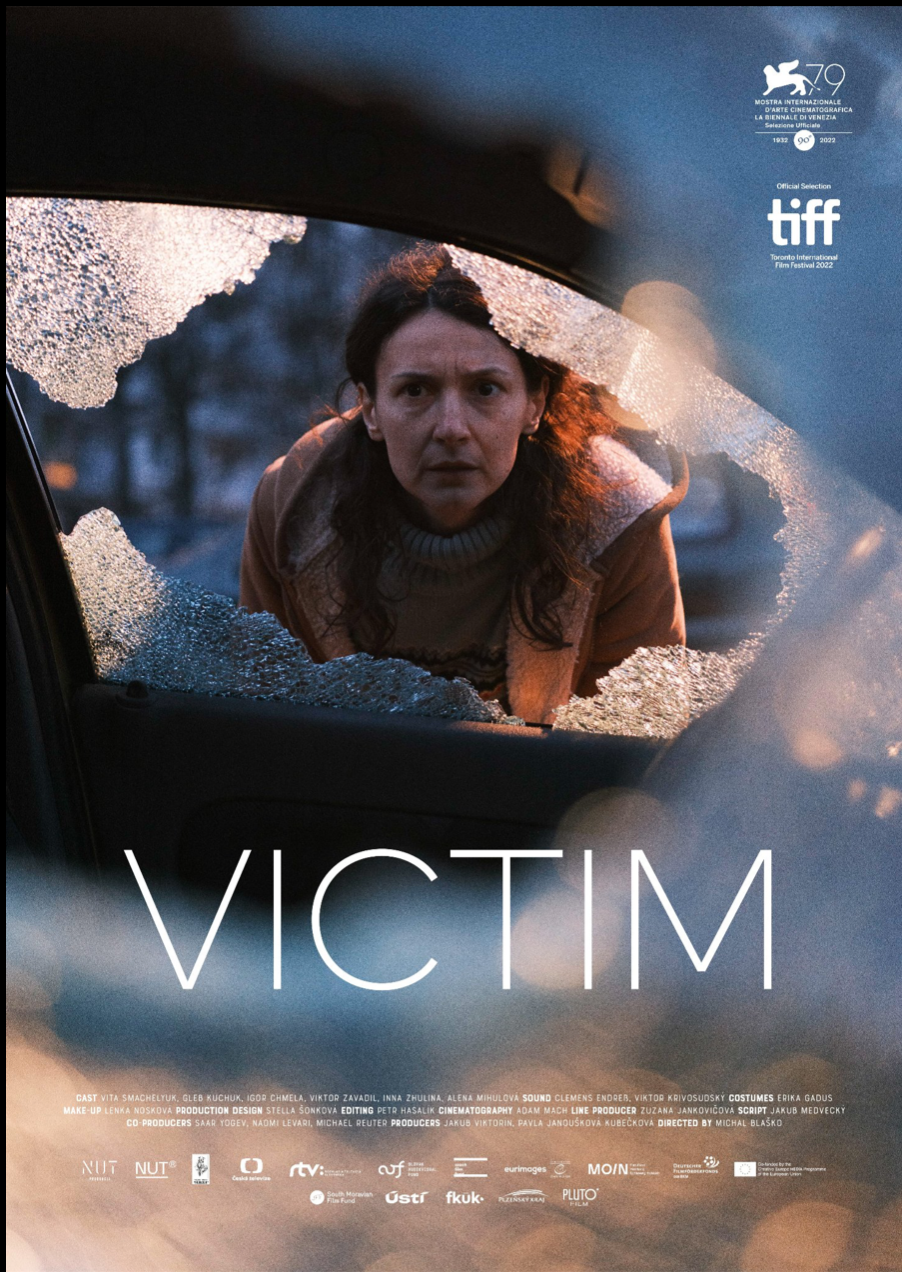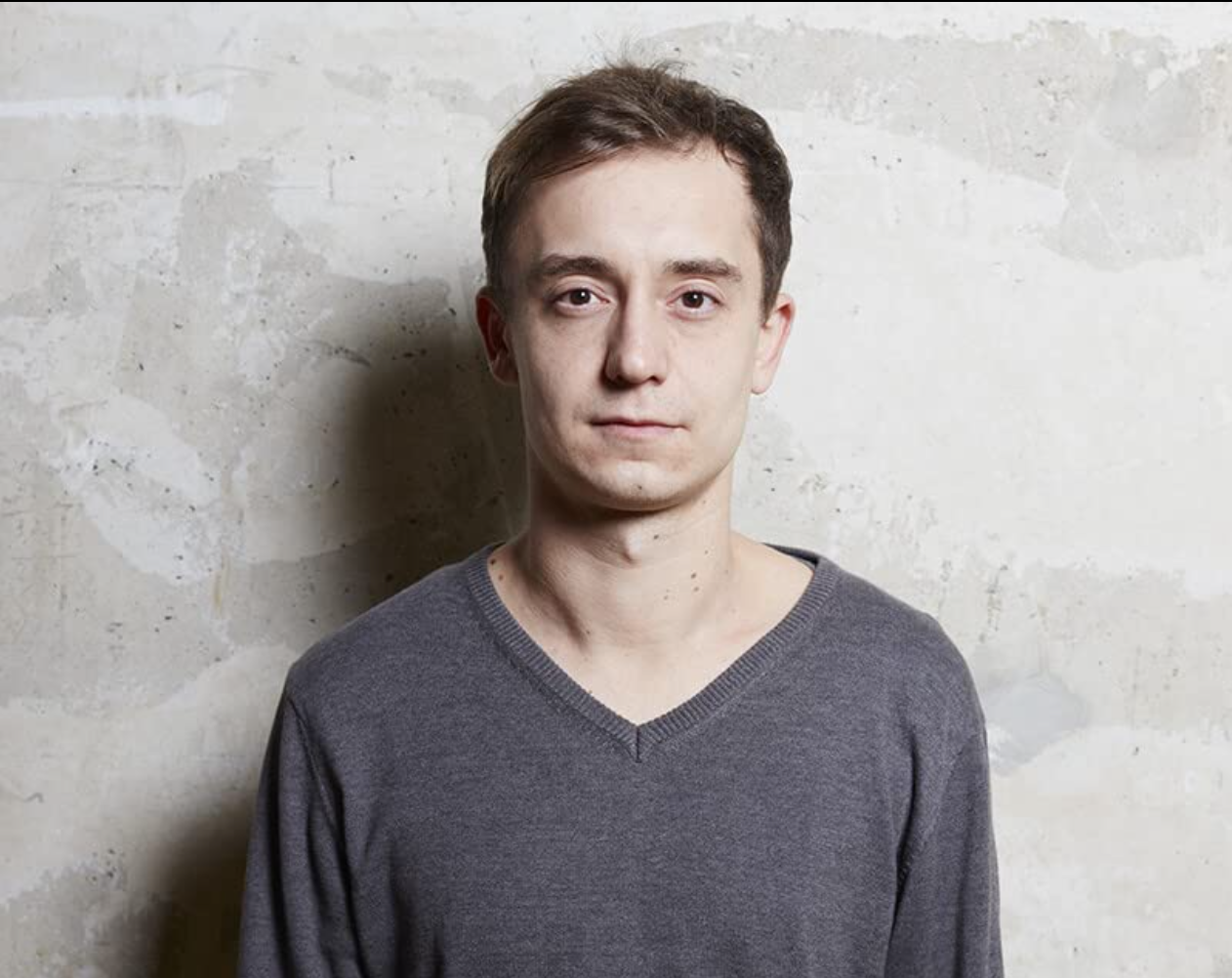Slovakia’s Oscar© 2023 Entry for Best International Feature: ‘Victim’ directed by Michal Blaško
.
‘Victim’ is a suspenseful drama about a woman seeking justice in a racist society, torn between family and the truth. Blaško continues his focus on the plight of an outsider stuck in a complicated situation, carrying on the thematic focus he has developed in his series and short films.

Irina is an immigrant single mother from Ukraine living in a small Czech town. When her son is assaulted and severely injured, the whole town stands up in solidarity with the mother and son and condemns their Roma neighbors, who are allegedly responsible. After Irina’s son wakes up in hospital, the truth about his incident begins to emerge. At the same time, a political campaign is gaining momentum in town, and different actors from media, politics and civil society strategically manipulate reality to their own ends. Truth and lies become difficult to tell apart. Torn between protecting her family and searching for the truth, Irina is ultimately forced to make a fateful decision.
Watch the trailer here: TRAILER LINK

This film’s moral dilemma reminded me of Fahrad’s A Hero and A Separation, in that a lie determines the fate of so many people.What inspired you to make this film?
I was inspired by how easy it is to manipulate society and its hatred. There were many cases around me that used this manipulation and legitimized racism, for example. I wanted to show how little you need to wake up this hatred and divide society.
Notable is the outstanding performance of lead actress Vita Smachelyuk as Irina Zyrchenko. How did you find the lead actors?
It was actually a long process, because we knew that the main actors needed to speak Ukrainian and Czech fluently. We found the main actress, Vita, in Hamburg, where she has been living with her husband for the last five years having moved there from Kyiv. The protagonist Igor lives in Prague, where he moved with his Ukrainian mother. None of them speaks fluent Czech, so Vita had to learn Czech for one and a half years. Gleb in the film speaks mostly Ukrainian, so for him it was easier. The rest were Czech Actors and non-actors.

I noticed the project Victim was selected for Cannes L’Atelier 2019. How did that help you with the film?
It helped a lot with funding. People started to believe in the film more and more and it was easier to fund the film. We were also able to meet many people from the industry interested in the film and find collaborators for the future. Overall, it was good experience.
Were there other workshops the film and you went through, and if so, where and how did the workshop help you and the director?
Yes, there were. For example, Connecting Cottbus, Budapest Debut Film Forum and When East Meets West in Trieste. Because of numerous meetings and presentations, you feel you talk about the film so much that you have really no problem to answer any question about it. I don’t think it helped me in a creative way or in a different way of thinking about the story, but you can talk about the topic with many interesting people and their views can be very refreshing and it can give you some points to think about.
Did you go through any government agencies, programs to develop and produce the film?
Actually the screenwriter went through one program initiative organized by the Czech Film Fund, but it was in the early stage of development. I don’t mean to say that it was pointless, but we were at a stage where we were confident about many things and they respected it and also understood that it was going the right direction.
How did the film get financed?
It is a Slovak-Czech-German co-production. Actually, the financing went without a problem, all the funds were very supportive.

It is quite daring for a debut feature…what drew you to this topic?
I knew that I couldn’t make a film that tells nothing about what is concerning me or people around me. I also found it to be very important that the storyline between the mother and son, which shows how tender the relationship is and how important it is, was the thrust of the story. These were the topics and themes that were important to me and they had to be the main focus of the film.
What happens to you in the process of writing and producing?
I am fully focused on improving the story and to be sure not to forget the topics and points that made me make this film. I know what I want to convey with the film and that is important to me but I don’t stay deaf or blind and when I learn some things that can improve it, I think about each one and if it works, I apply it.
What do you consider your strongest attribute as a director?
That’s a tricky question and really difficult to answer. Every film is different and I try to have some kind of artistic voice that suits the story and is related to me. On the other hand, I don’t stick with one formal approach and think about the story as the most important part of the process.
Where do you feel least assured?
Actually nowhere, each part of the process is important for the final result and influences everything, so I don’t think about it like this.
What do you like most about directing?
The ability to tell a story. To build characters, that people love or hate and to take them through a story that touches the audience and makes them think about themselves. I think that is beautiful and if it works, it is magic.
What happens to you now that you have finished the film and it is up for an Oscar nomination?
It is a new experience for me and I am very grateful to the Slovak Film Academy that they nominated our film. First of all it allows us to present this film and its topics to more and more people and also get more attention. Aside from that, I am working on a new feature film project called Cowgirl, so one film is fully done and the other one is in preparation.
How and when did the international sales agent come on board?
We presented films in several markets such as L’Atelier, so we had been in touch with several sales agents. In the late stage of post-production we decided that the best fit would be Pluto Film. It is a great collaboration and it is a joy to work with Daniela and Ben.
How did the film play in Slovakia?
Slovak society is strange in a way. 70% of the people never returned to cinemas after Covid. That is a big number and you can sense it in the empty cinemas. People are also divided about the Ukrainian conflict, which is because there is a great deal of Russian propaganda in Slovakia and, unfortunately, a lot of Russian fake news influences the society. With this in mind, the film was much more successful abroad than in domestic cinemas. And that is unfortunate, really.
Victim screened at the Venice, Toronto and Busan Film Festivals. Blaško’s previous award-winning short film Atlantis 2003 screened at Cannes in 2017 before going on to win the Czech Lion for best short film, and his mini-series Suspicion premiered in the Berlinale Series this year.
Directed by: Michal Blaško
Written by: Jakub Medvecky
Cast: Vita Smachelyuk, Gleb Kuchuk, Igor Chmela, Viktor Zavadil, Inna ZhulinaOriginal title: Obet
Language: Ukranian, Czech (English subtitles)
Running time: 91 mins
International Sales Agent: Pluto Film
“A taut moral thriller…compelling…smooth, tense, fluid” — Jessica Kiang, Variety
“A beautifully performed morality tale.” — Jared Mobarak,TheFilmStage.com
“Blaško succeeds in creating a universal tale about two-class societies, repressed xenophobia and racism, as well as broken hopes and dreams. “
Susanne Gotlieb — Cineuropa“Tense social drama.”
“Emphasizes behavioral reactions to the moral and sociopolitical problems of modern-day Europe. The film never gets overtly political.”
Arun Kumar, HighonFilms.com
“Victim Is a beautifully performed morality tale.”
“A challenging role performed beautifully by Smachelyuk.”
Jared Mobarak, TheFilmStage.com




No comments:
Post a Comment